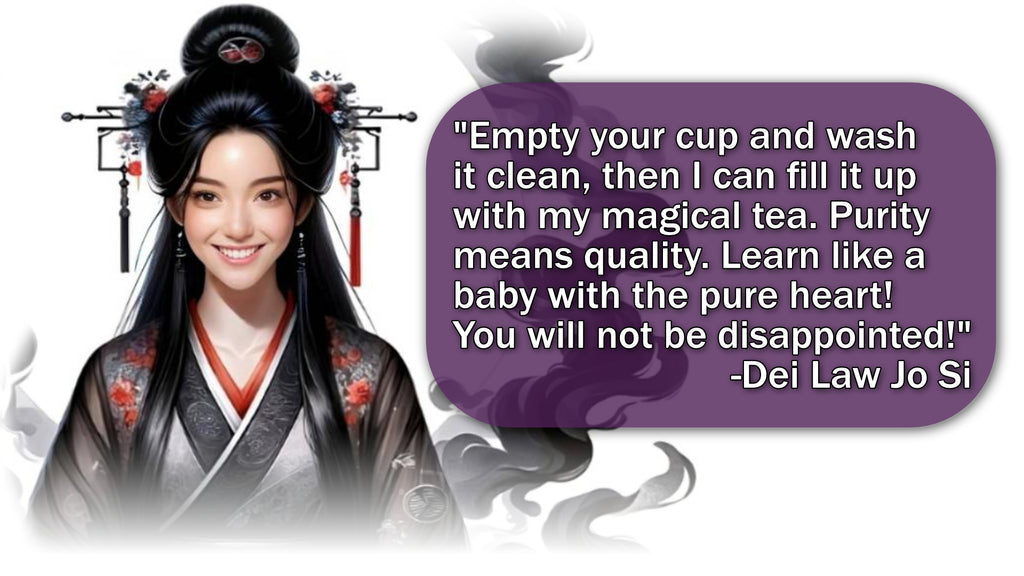
When you enter the sect, even as a Tin Yat Stage disciple, it’s important to follow the etiquette that show respect to yourself and others. We understand that you are new, so there’s no need to constantly remind us that you’re a beginner. Focus on learning and blending into the sect, and you’ll do just fine.
As a disciple, you will address Jee Sifu as *Ju Cia Juan*. The title *Cia Juan* (師尊) means the highest-ranking master in charge of everything. He is not just any master but the master of masters in the sect. There are three *Cia Juans* in the lineage, and you will learn about them as you progress.
Calling your master "Jee Sifu," as an outsider might, is like addressing him as a professional without acknowledging him as your master. Using the correct title is essential to show your acceptance and respect.
Senior disciples, those who joined before you, are addressed as *Cia Hieong* (師兄) for males, meaning "elder brother," and *Cia Jia* (師姐) for females, meaning "elder sister." Their names follow their Taoist name prefix, “Tin 天.” For instance, if a senior sister’s Taoist name is Tin Meow, you would call her Meow Cia Jia.
To make things a bit easier - Cia Jia can be typed as CJ, Cia Hieong can be CH. That way you can type faster on LINE. "Thanks Meow CJ!" However Cia Juan is always Cia Juan, never shorten it so it is never mistaken by newbies.
What determine if someone is your upper?
First is by which stage they are in, for example if someone is in Sun Lung stage and you are in Saam Law Stage, of course they are higher.
if both are in the same stage, then you should know "who came in first" to be the elder one.
If unsure, ask Cia Juan for clarification.
If both are in the same stage, it is also ok to treat as "peers", so just call each others by the name without the Tin is also acceptable.
It’s okay to make mistakes while learning these terms. Ask questions and start conversations—everyone is here to help. You’ll get the hang of it over time.
Our primary communication platform is LINE, and daily greetings are an essential part of our practice. When you wake up, greet the group to start your day and receive empowerment from the seniors to help energize you. At the end of the day, greet again to conclude your day.
Don’t think you’re limited to greeting twice a day. You are encouraged to chat, ask questions, and engage as much as you want. Proactive participation helps you learn more and build connections with your *Cia Juan* and fellow disciples. Those who stay silent often fade away and become “background disciples,” like yellow leaves ready to fall from the tree. Stay proactive, like a green leaf full of potential, and you’ll thrive in your journey.
We value authenticity and simplicity. Your *Cia Juans* appreciate honesty and dislike pretentious behaviour. Be yourself in the lineage—share your feelings, open your heart, and embrace the genuine connection we cultivate here. Avoid fake personas, flowery words, or superficial behaviour.
We believe in direct, heart-to-heart relationships. If you came here for real teachings, we’ll provide the “real beef” without wasting time. In return, we expect the same sincerity from you. Show your true self with real pictures and a genuine attitude. Your *Cia Juan* doesn’t sugarcoat things; if you’re wrong, you’ll be scolded, but you’ll also receive heartfelt and authentic teachings, free from modern marketing gimmicks. This kind of genuine guidance is rare, and we are proud to uphold this tradition.